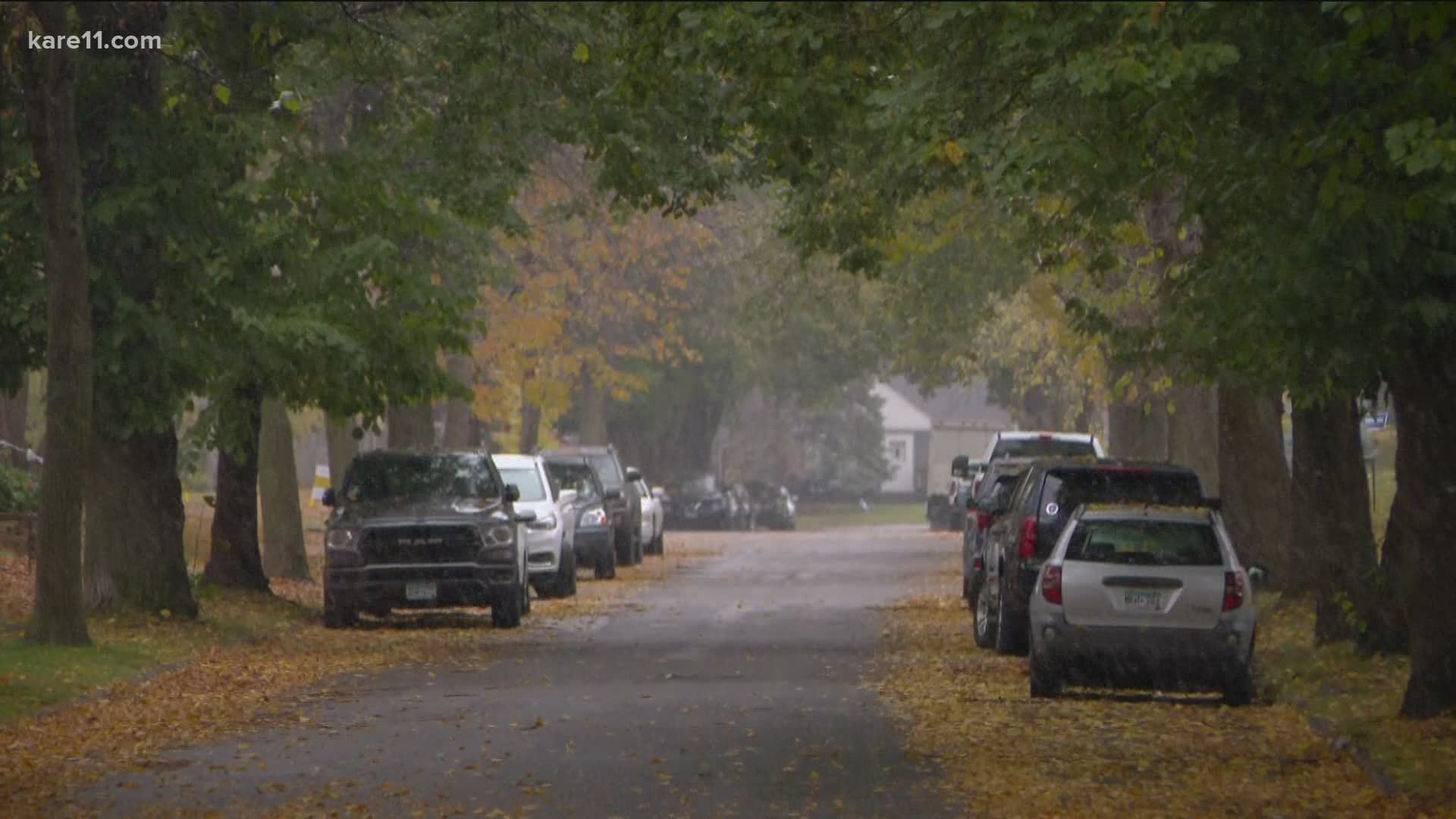MINNEAPOLIS — Much like the weather outlook, a cold reality is beginning to set in for those tracking the COVID-19 pandemic. Fatigue appears to be driving a resurgence in cases at exactly the wrong time.
"The next six to 12 weeks are going to be the darkest of the entire pandemic," said Dr. Michael Osterholm, director of the University of Minnesota Center for Infectious Disease Research and Policy, during a weekend interview on NBC's Meet the Press.
Though Minnesota has fared better than its neighboring states in recent weeks, the Minnesota Department of Health is growing more concerned about the weeks ahead after seeing key areas rapidly trending in the wrong direction.
"For the first time, we are seeing faster growth in cases than in testing," said MDH Commissioner, Jan Malcolm.
According the the MDH COVID-19 Dashboard, case growth isn't the only area of concern. Hospitalizations and community spread are also now above caution levels.
If the numbers get worse, they could cause Governor Tim Walz to dial up COVID-19 restrictions on public gatherings and businesses, but Malcolm says public gatherings haven't really been the problem.
"What seems to have changed more recently, is to let down our guard in the private settings," she said.
Mental health experts says COVID fatigue appears to be driving the drop in personal accountability and rise in cases.
"There's obviously a sense of extreme disappointment," said Dr. Kaz Nelson, a psychiatrist and professor at the University of Minnesota Medical School.
Dr. Nelson says the fear that motivated many people to follow public health guidelines in the first several months, has turned into fatigue.
"This idea of COVID fatigue, this exhaustion, this never-ending sense that we are needing to deal with this threat that faces all of us, that's something that has really impacted us globally," Dr. Nelson said.
Whether or not you associate yourself with COVID fatigue, Dr. Nelson says we all need to acknowledge it.
"We are naturally social beings. Of course we want to gather. Of course we want to maintain our traditions," she said. "These types of disappointments, these painful feelings - missing people, missing gatherings - they are real feelings that need to be acknowledged, maybe even witnessed; if you have someone you can confide in about this. I think sometimes we get into trouble when we say, 'Oh, it's not a big deal or it doesn't impact me.' That ignoring or minimizing of feelings or, even worse, telling someone they shouldn't be disappointed in feeling that way, that's where we can get into some of the stress and trouble associated with some of these disappointments. All of that has a cost. People feel depressed, anxious, isolated. Some people might even be experiencing suicide thoughts. Those are real consequences too."
But Dr. Nelson says its important to talk about those consequences and ask questions if you are concerned about friends and loved ones.
But she warns not to let fatigue to lead to frustration and ignoring good public health guidance. She says refusing to wear a mask or social distance will just prolong the experience. Instead, she says think about how to connect safely even in the winter.
"Everybody is going to need their mental health toolkit this winter and everyone's personal toolkit looks a little different," Dr. Nelson said. "For many people, being outdoors, spending time in nature, crunching through the snow, is a therapeutic activity. For others, it might not be so therapeutic. It might look like a mug of hot chocolate in front of Netflix for the evening. But whatever is in your mental health toolbox you're going to need to use it and apply it to full effect this winter."
Kaz says planning and communication are key to figuring out holiday traditions that might have to be modified this year. Even if family members disagree, she says we need to give each other space and grace to talk about how we feel and find ways to connect.

